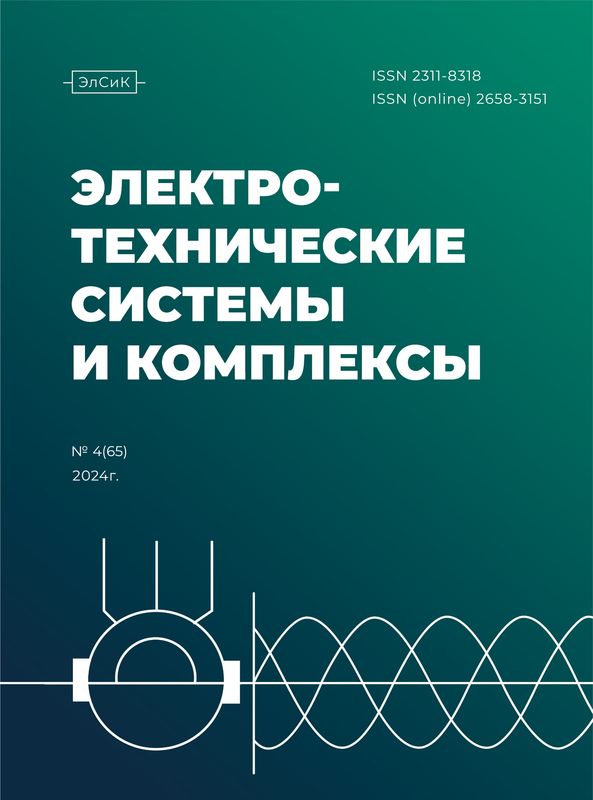Abstract
Power system planning is responsible for the generation, transmission and distribution of electricity. Thus, an accurate forecast of electricity consumption is essential as it serves as the basis for energy management and operational decisions. This would be a big step forward for energy producers. In addition, improved energy data processing opens up new opportunities for data collection, exploration and more accurate forecasting. As a result, researchers around the world are trying to improve energy demand forecasts.
Therefore, energy companies need to explore models in order to better predict and plan energy use. One approach to solving this problem is the assessment of energy consumption at the consumer level. The energy consumption forecasting concern is a time series regression concern. It consists of predicting energy consumption for the next few days, given the customer's end story. Machine learning methods have shown promising results in a variety of tasks including time series and regression concerns. Some of these promising results are related to deep neural networks. Although deep model architectures have been explored in other areas, they have not been used to solve the power consumption prediction concern.
In this paper, we propose a new, efficient system for predicting monthly energy consumption using deep learning methods. The authors analyzed two machine learning models. Several architectures of neural network models have been developed. Model studies were carried out on a dataset that included historical data for 10 years. The results showed that the resulting architecture of the hybrid model can predict hourly energy consumption with a relative error of 5%.
The proposed solution could act on energy producers/distributors to help smart meters make better decisions to reduce overall energy consumption by limiting energy production.
Keywords
Machine learning, neural networks, XGBoost, LSTM, RNN, CNN, energy forecasting, time series, energy.
1. Kitov V. V., Mishustina M.V., Ustyuzhanin A.O. Time series prediction survey of statistical, machine learning and deep learning methods: historical aspects. Voprosy Istorii [Issues of history], 2022, no. 4-2, pp. 201-218. (In Russian). doi: 10.31166/VoprosyIstorii202204Statyi40
2. Berdonosov V.D., Vasilev G.V., Zhivotova A.A. Analysis and development potential of predictive models for energy flows of autonomous hybrid energy systems// Journal of physics: conference series. 2021, vol. 2096, 012024. doi: 10.1088/1742-6596/2096/1/012024
3. Yesenkov A.S., Zakharova E.M., Kovaleva M.D., Konstantinov D.E., Makarov I.S., Pankovets E.A. Research and application of architectures of deep neural networks for classification on multidimensional time series. Izvestiya rossiyskoy akademii nauk. Teoriya i sistemy upravleniya [Proceedings of the Russian Academy of Sciences. Theory and control systems], 2022, no. 4, pp. 133-142. (In Russian). doi: 10.31857/s0002338822040072
4. Vasiliev G.V., Berdonosov V.D. Development and comparison of models for predicting electricity consumption using recurrent neural networks with long short-term memory. Nauka, innovatsii i tekhnologii: Materialy Mezhdunarodnoy naucho-prakticheskoy konferentsii. [Proceedings of the International Scientific and Practical Conference "Science, innovations and technologies: from ideas to implementation"]. Komsomolsk-on-Amur, 2022, pp. 203-206. (In Russian)
5. Vasiliev G.V., Berdonosov V.D. Analysis of energy flow models of hybrid energy systems. Aktualnye problemy informatsionno-telekommunikatsionnykh tekhnologiy i matematicheskogo modelirovaniya v sovremennoy nauke i promyshlennosti: Materialy I mezhdunarodnoy nauchno-prakticheskoy konferentsii molodykh uchenykh [Proceedings of the 1st International Scientific and Practical Conference of Young Scientists "Actual problems of information and telecommunication technologies and mathematical modeling in modern science and industry"]. Komsomolsk-on-Amur, 2022, pp. 191-194. DOI: 10.17084/978-5-7765-1488-3-2021-191. (In Russian)
6. Kandasamy P., Chandrasekaran K., Natarajan R., Selvaraj J. Deep CNN-LSTM-based dstatcom for power quality enhancement in microgrid. Journal of circuits, systems, and computers. 2022, vol. 31, no. 7, p. 2250130. doi: 10.1142/S0218126622501304
7. Dong X., Zong X., Wang J., Li P. Enterprise economic forecasting method based on ARIMA-LSTM model. Lecture notes of the institute for computer sciences, social-informatics and telecommunications engineering. 2022, vol. 429 LNICST, pp. 36-57. doi: 10.1007/978-3-030-99188-3_4
8. Ulloa N.I., Chiang S.H., Yun S.H., Furuta R. Sentinel-1 spatiotemporal simulation using convolutional LSTM for flood mapping. Remote sensing. 2022, vol. 14, no. 2, pp. 246. doi: 10.3390/rs14020246
9. Rahman Z.U., Ullah S.I., Salam A., Rahman T., Khan I., Niazi B. Automated detection of rehabilitation exercise by stroke patients using 3-layer CNN-LSTM model. Journal of Healthcare Engineering. 2022, vol. 2022, pp. 1563707. doi: 10.1155/2022/1563707
10. Safaraliev M.H., Matrenin P.V., Dmitriev S.A., Akhieev J.S., Kokin S.E. Adaptive ensemble models for medium-term forecasting of electricity generation by hydroelectric power plants in isolated energy systems, taking into account changes in temperature. Elektrotekhnicheskie sistemy i kompleksy [Electrotechnical systems and complexes]. 2022, no. 1(54), pp. 38-45. (In Russian). https://doi.org/10.18503/2311-8318-2022-1(54)-38-45
11. Zhao B., Li X., Lu X. CAM-RNN: Co-attention model based RNN for video captioning. IEEE Trans. Image Process. 2019, vol. 28, no. 11, pp. 5552-5565. doi: 10.1109/TIP.2019. 2916757
12. Hong X., Lin R., Yang C., Zeng N., Cai C., Gou J., Yang J. Predicting Alzheimer's disease using LSTM. IEEE Access. 2019, vol. 7, pp. 80893-80901. doi: 10.1109/ACCESS.2019.2919385
13. Alekseev A.O., Antonov V.I. Confirmation of the Electrical Network Configuration using the LSTM Neural Network. Informatsionnye tekhnologii v elektrotekhnike i elektroenergetike: Materialy XIII Vserossiyskoy nauchno-tekhnologicheskoy konferentsii [Proceedings of the 13th All-Russian Scientific and Technical Conference "Information technologies in electrical engineering and electric power industry"]. Cheboksary, 2022, pp. 340-344. (In Russian)
14. Hasoon S.O., Al-Hashimi M.M. Hybrid deep neural network and long short term memory network for predicting of sunspot time series. International journal of mathematics and computer science. 2022, vol. 17, no. 3, pp. 955-967.
15. Meizer M.V., Severyanova E.D. An example of time series forecasting using a recurrent neural network LSTM. Factor obespecheniya kachestva issledovaniy: Professionalnye kommunikatsii v nauchnoy srede - Materialy XI Vserossiyskoy nauchno-prakticheskoy konferentsii [Proceedings of the 11th All-Russian Scientific and Practical Conference "Professional communications in the scientific environment - a factor in ensuring the quality of research"]. St. Petersburg, 2022, pp. 211-214. (In Rusian)
16. Timofeev A.G., Lebedinskaya O.G. Model of application of convolutional neural network (CNN) in combination with long-term memory (LSTM) for forecasting oil prices under uncertainty. Transportnoe delo Rossii [Transport business of Russia], 2022, no. 2, pp. 54-59. (In Russian). doi: 10.52375/20728689_2022_2_54
17. Istamkulov H.S. Analysis of the use and application of LSTM architecture. Sovremennaya nauka: aktualnye problem teorii i praktiki. Seriya: estestvennye i tekhnicheskienauki. [Modern Science: Actual Problems of Theory and Practice. series: natural and technical sciences], 2022, no. 6, pp. 77-80. (In Russian). doi: 10.37882/2223-2966.2022.06.16
18. Tuerxun W., Guo L., Xu C., Guo H., Gao Y., Zeng N. A wind power forecasting model using LSTM optimized by the modified bald eagle search algorithm. Energies. 2022, vol. 15, no. 6, p. 2031. doi: 10.3390/en15062031
19. Zhao R., Lam K., Lun D.P.K. Enhancement of a CNN-based denoiser based on spatial and spectral. IEEE international conference on image processing (ICIP). IEEE, 2019, pp. 1124-1128. doi: 10.1109/ICIP.2019.8804295
20. Bakhmetenko O.A., Eliseeva A.A. Development of an algorithm for managing a microgrid with renewable energy sources taking into account short-term forecasts for the generation and consumption of electrical energy. Elektroenergetika glazami molodezhi: Materialy XI Mezhdunarodnoy nauchno-tekhnicheskoy konferentsii [Proceedings of the 11th International Scientific and Technical Conference "Power industry through the eyes of youth"]. Stavropol, North Caucasian Federal University Publ., 2020, pp. 149-150. (In Russian)
21. Stern Yu.I., Kozhevnikov Ya.S., Medvedev V.A., Mironov R.E., Karavaev I.S. Methods for determining the individual consumption of thermal energy, implemented on the basis of an intelligent system for monitoring energy resources. Izmeritelnaya tekhnika [Measuring equipment], 2022, no. 2, pp. 46-50. (In Russian)
22. Slyusareva V.A., Budantsev A.V. Research and forecasting of time series. Aktualnye issledovaniya [Actual research], 2022, no. 21 (100), pp. 33-37. (In Russian)
23. Chen Y., Long C., Cong G., Li C. Context-aware deep model for joint mobility and time prediction. WSDM 2020 Proceedings of the 13th International Conference on Web Search and Data Mining (WSDM). Association for Computing Machinery, 2020, pp. 106-114. doi: 10.1145/3336191.3371837
24. Meizer M.V., Severyanova E.D., Mokshin V.V. An example of time series forecasting using a recurrent neural network LSTM. Molodoy uchenyi [Young scientist], 2022, no. 9(404), pp. 13-15. (In Russian)
25. Shishkov E.M., Pronichev A.V., Savelyev A.A. Forecasting time series using machine learning methods on the example of the power output schedule of a power plant. Mezhdunarodnyi nauchno-issledovatelskiy zhurnal [International Research Journal], 2022, no. 2-1(116), pp. 56-60. (In Russian). doi: 10.23670/IRJ.2022.116.2.009
26. Emaletdinova L.Yu., Kabirova A.N., Vildanov N.R. Neural network modeling of the problem of predicting the values of the time series. Vestnik tekhnologicheskogo universiteta [Bulletin of the Technological University], 2022, vol. 25, no. 10, pp. 101-106. (In Russian). doi: 10.55421/1998-7072_2022_25_10_101
27. Devrishev N.E., He Yu., Petrosyan O.L. Detection of anomalies in time series using forecasting methods. Protsessy upravleniya i ustoychivost [Management processes and stability], 2022, vol. 9, no. 1, pp. 202-209. (In Russian)
28. Evstigneev I.P. Time Series Forecasting. Sistemnyi administrator [System Administrator], 2022, no. 7-8(236-237), pp. 138-139. (In Russian)
29. Timofeev G.A., Berdonosov V.D. Use of actual tools for data collection and analysis. Nauka, innovatsii i tekhnologii: ot idey k vnedreniyu: Materialy Mezhdunarodnoy nauchno-prakticheskoy konferentsii [Proceedings of the International Scientific and Practical Conference "Science, innovations and technologies: from ideas to implementation"]. Komsomolsk-na-Amur, 2022, pp. 257-258. (In Russian)
Vasilev G.V., Berdonosov V.D. Methodology for Effective Application of Hybrid Models of Neural Networks for Energy Consumption Prediction. Elektrotekhnicheskie sistemy i kompleksy [Electrotechnical Systems and Complexes], 2022, no. 4(57), pp. 88-95. (In Russian). https://doi.org/10.18503/2311-8318-2022-4(57)-88-95










